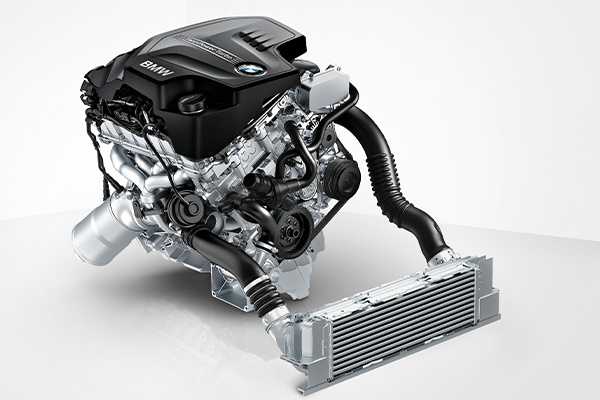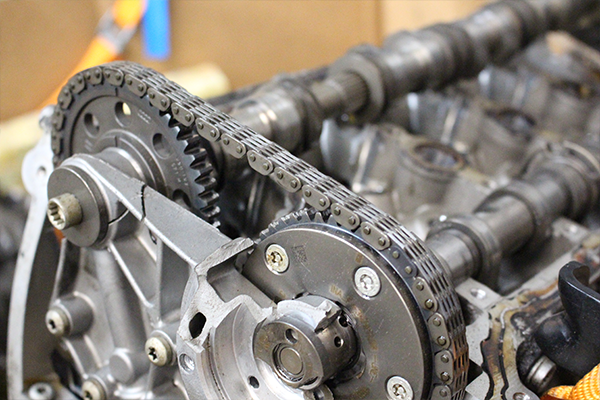BMW N20 Timing Chain Issues Explained
BMW has built its reputation on quality craftsmanship and precise engineering, but that doesn’t mean Bimmer engines are immune to oversights or shortcomings. One of the most well-known examples of this is the timing chain issues on the N20 engine.
The N20 debuted in 2011 as a 4-cylinder meant to strike a balance of power and efficiency. The turbocharged and direct-injected motor most notably saw use in BMW’s 3-series lineup, specifically with the 2011-2016 328i and a lower power output version used in the 2011-2015 320i. It was also used on a variety of other BMW models, most of them retaining the 20i and 28i suffixes.

The Problem
It’s been well-documented for years that N20 motors have a high chance of encountering timing chain failure at certain mileages. A timing chain or belt is responsible for keeping the internal components of an engine synced up with the combustion cycle. When the chain fails, the valves and pistons can collide and cause catastrophic and generally irreparable damage.
Why Does This Happen?
While most timing chain/belt failures on other engines occur when the chain itself breaks, the affinity N20 motors have for destroying themselves often traces back to the small guides that keep the chain running on track.
In the early years of the N20’s production, the timing chain guides were constructed of a plastic material that would often fail prematurely, causing slack in the chain. Without proper tension, the engine’s timing will be thrown off and lead to colliding valves and pistons.

What Engines Are Affected?
Not all N20-powered vehicles have the infamous plastic chain guides. The timing chain guides were redesigned with a more durable material in 2015, meaning models using the N20 past this year should not have the issue.
The rate at which this issue affects pre-2015 N20s is unknown, but it’s a good idea to have yours inspected by a trusted automotive professional regularly. Many times the failure begins to occur as the engine approaches the 100K mile mark, however, there is no set timeline.
Symptoms of Failing Timing Chain
While timing chain failures can happen without warning, oftentimes times there are prior signs to look out for as an N20 owner.
Rough Idle
One of the most noticeable signs of potential timing chain failure is your engine struggling to run properly. As slack develops in the chain, the timing will start to shift and can lead to improper air-fuel ratio and mistimed valve actuation.
You may notice your vehicle shaking or vibrating when at stop lights, or dark smoke coming from your exhaust as the engine burns an excess amount of fuel.
Lack of Performance
As your motor struggles to run at its best with faulty timing, your vehicle may experience performance issues. This may be noticeable when accelerating from a stop or attempting to reach highway speeds.
Strange Noises
A failing timing chain may start to emit worrying noises as you drive. Since the chain is loose and not running properly on the guides, you may hear a metallic rattling or whining that increases as the RPM climbs.
Oftentimes the the chain will start to emit this whining noise at about 4,000 RPM. This is the most telltale sign that your timing chain is beginning to fail, and upon hearing it you should have your engine inspected immediately to avoid potential catastrophic engine damage.
Check Engine Light
As problems develop within your engine as your timing chain begins to fail, there’s a good chance you’ll be greeted by a check engine light at one point. While check engine lights could mean a variety of different issues, fault codes such as 2A67 (Valvetronic internal fault) or 2D55 (VANOS, intake, cold start, non-adjustable) are usual fault codes seen in N20 engines with timing chain failure.
What Next?
If you suspect your N20 vehicle is experiencing timing chain failure, the next thing to do is have your car inspected by a trusted automotive professional. Continuing to drive with a compromised timing chain only increases the chance of irreparable damage occurring in your engine.
Even if you’re not currently experiencing symptoms of a failing chain, you should have your early N20 timing chain and guides inspected during regular maintenance to prevent unexpected issues in the future.
Having your chain and the guides replaced is the only surefire way to avoid timing chain failure, and it’s a good idea to have this done preventatively when purchasing a pre-2015 N20 vehicle.
Timing Chain/Belt Services in Carlsbad
If you’re experiencing symptoms of a failing timing chain, don’t delay having it inspected and serviced! The ASE-certified technicians at Carlsbad Auto Service have the expertise and equipment to properly service the timing on your BMW’s motor. Call or schedule online with us today.
